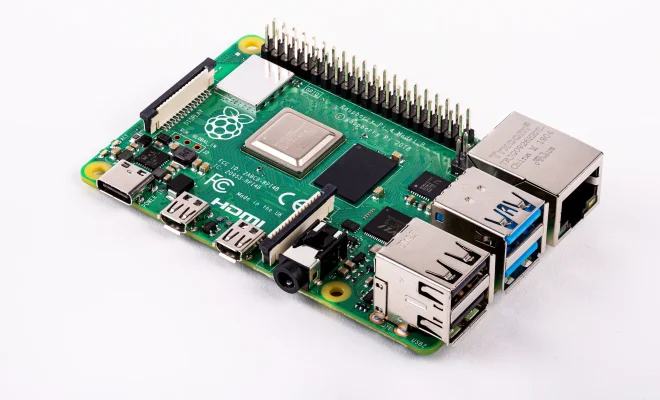Which Raspberry Pi Model Is Best for Your Next Project?

Raspberry Pi has become a household name in the world of single-board computers. The versatile little computer can be used for a wide range of projects, ranging from basic desktop computing to robotics and IoT applications. With the introduction of several models of Raspberry Pi, choosing the best one for your next project can be challenging. In this article, we will discuss the different Raspberry Pi models and their respective strengths and weaknesses to help you decide which one to use for your next project.
Raspberry Pi Zero
The Raspberry Pi Zero is the smallest and cheapest Raspberry Pi model, which makes it an excellent option for projects that require a minimal footprint. It is powered by a Broadcom BCM2835 processor, which runs at a clock speed of 1GHz. The Zero comes with 512MB of RAM, a mini HDMI port, a micro USB port for power, and a micro-SD card slot. However, it does not have Ethernet or Wi-Fi connectivity, which can be a limitation for many projects. The Zero is best suited for embedded projects, IoT applications, and portable media players.
Raspberry Pi 1
The Raspberry Pi 1 was the first model of Raspberry Pi, which was introduced in 2012. It is powered by a Broadcom BCM2835 processor, which runs at a clock speed of 700MHz. The model comes with 512MB of RAM, two USB 2.0 ports, a 10/100 Ethernet port, and an RCA composite video output. However, the Model 1 does not have built-in Wi-Fi or Bluetooth connectivity, and its processing power is relatively modest. The Raspberry Pi 1 is best suited for basic computing, retro gaming, and media centers.
Raspberry Pi 2
The Raspberry Pi 2 was introduced in 2015 and represented a significant upgrade over the Model 1. It is powered by a quad-core Broadcom BCM2836 processor, which runs at a clock speed of 900MHz. The Model 2 comes with 1GB of RAM, four USB 2.0 ports, a 10/100 Ethernet port, and a full-sized HDMI port. The Raspberry Pi 2 also has built-in Wi-Fi and Bluetooth connectivity, which makes it an excellent option for IoT projects. The Raspberry Pi 2 is best suited for basic computing, retro gaming, and media centers.
Raspberry Pi 3
The Raspberry Pi 3 was released in 2016 and is similar to the Raspberry Pi 2 in terms of processing power and memory capacity. However, it comes with built-in Wi-Fi and Bluetooth connectivity, which makes it an excellent option for IoT projects. The Raspberry Pi 3 is powered by a quad-core Broadcom BCM2837 processor, which runs at a clock speed of 1.2 GHz. It comes with 1GB of RAM, four USB 2.0 ports, a 10/100 Ethernet port, and a full-sized HDMI port. The Raspberry Pi 3 is best suited for basic computing, gaming, media centers, and IoT projects.
Raspberry Pi 4
The Raspberry Pi 4 is the latest model of Raspberry Pi and is the most powerful in the lineup. It is powered by a quad-core Cortex-A72 CPU, which runs at a clock speed of 1.5GHz. The Raspberry Pi 4 comes with 1GB, 2GB, or 4GB of RAM, depending on the version. It also has two USB 3.0 ports, two USB 2.0 ports, Gigabit Ethernet, and dual-band 802.11ac wireless. The Raspberry Pi 4 has the processing power to handle more demanding tasks such as 4K video playback and advanced gaming. It is best suited for projects that require high processing power like desktop computing, gaming, and media centers.
Conclusion
Choosing the best Raspberry Pi model for your next project depends on your specific requirements. If you need a small and inexpensive computer for embedded projects or media players, the Raspberry Pi Zero may be the best choice. For basic computing, gaming, and media centers, the Raspberry Pi 2 or 3 could be a better fit. For more demanding applications such as video playback and gaming, the Raspberry Pi 4 would be the best option. Whatever your project requirements, there is a Raspberry Pi model that will suit your needs.






